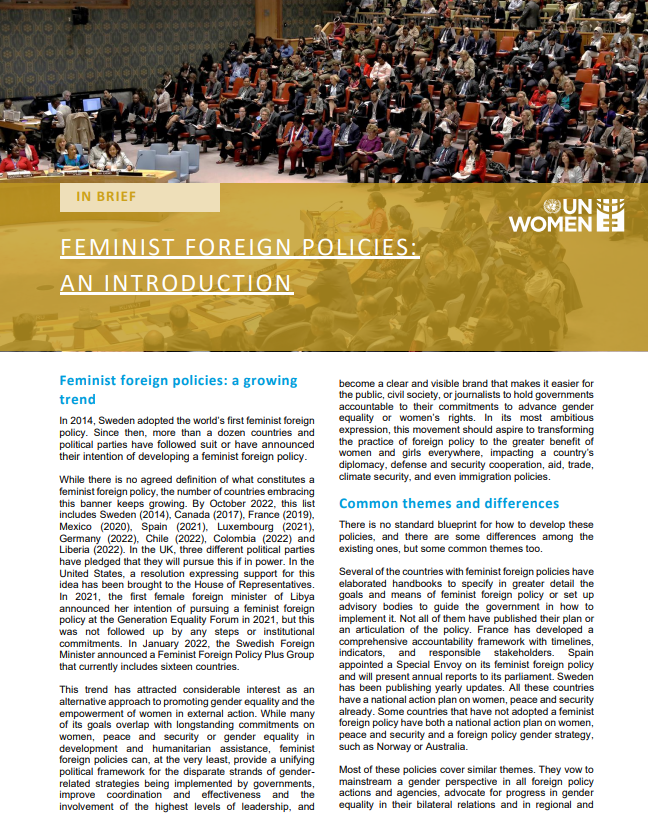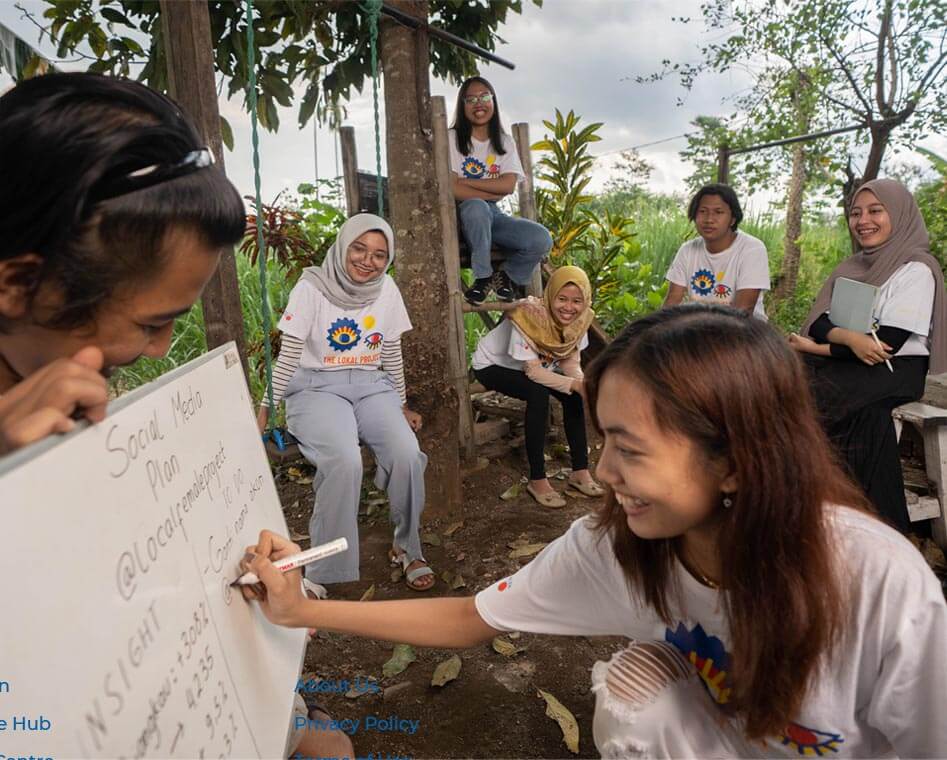
Feminist foreign policies: An introduction
Publication Date: September 30, 2022
Total Pages: 2
Organization: UN Women
Languages: English
Country/Region: Global
Topic Area: Gender Mainstreaming, Gender equality and women’s empowerment, Leadership and political participation
Year: 2022
Resource Type: Briefs
Abstract
In 2014, Sweden adopted the world’s first feminist foreign policy. Since then, more than a dozen countries and political parties have followed suit or have announced their intention of developing a feminist foreign policy.
While there is no agreed definition of what constitutes a feminist foreign policy, the number of countries embracing this banner keeps growing. By October 2022, this list includes Sweden (2014), Canada (2017), France (2019), Mexico (2020), Spain (2021), Luxembourg (2021), Germany (2022), Chile (2022), Colombia (2022) and Liberia (2022). In the UK, three different political parties have pledged that they will pursue this if in power. In the United States, a resolution expressing support for this idea has been brought to the House of Representatives. In 2021, the first female foreign minister of Libya announced her intention of pursuing a feminist foreign policy at the Generation Equality Forum in 2021, but this was not followed up by any steps or institutional commitments. In January 2022, the Swedish Foreign Minister announced a Feminist Foreign Policy Plus Group that currently includes sixteen countries.
This trend has attracted considerable interest as an alternative approach to promoting gender equality and the empowerment of women in external action. While many of its goals overlap with longstanding commitments on women, peace and security or gender equality in development and humanitarian assistance, feminist foreign policies can, at the very least, provide a unifying political framework for the disparate strands of gender-related strategies being implemented by governments, improve coordination and effectiveness and the involvement of the highest levels of leadership, and become a clear and visible brand that makes it easier for the public, civil society, or journalists to hold governments accountable to their commitments to advance gender equality or women’s rights. In its most ambitious expression, this movement should aspire to transforming the practice of foreign policy to the greater benefit of women and girls everywhere, impacting a country’s diplomacy, defense and security cooperation, aid, trade,
climate security, and even immigration policies

